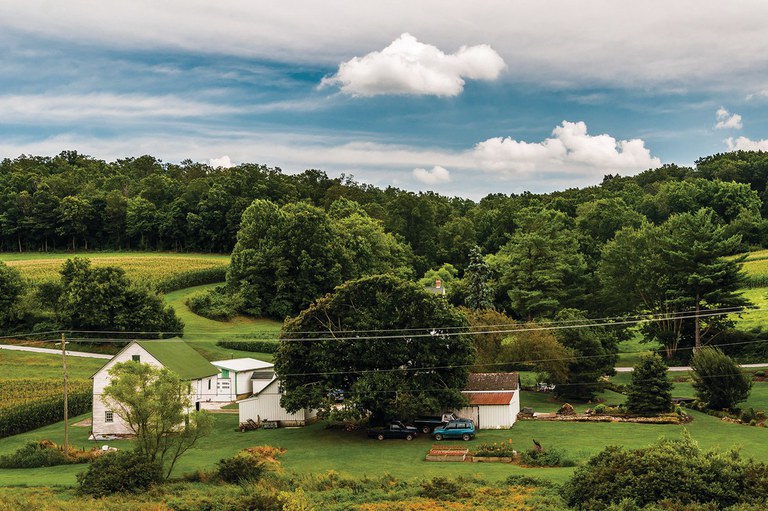Posted: March 17, 2022
Small farms have a large impact on Pennsylvania's economy.
Despite vastly outnumbering large farms, small farms produce only a fraction of Pennsylvania's total agricultural output. However, these smaller operations support billions of dollars' worth of economic activity while helping to preserve farmland and adding to the diversity of the state's agriculture, according to a pair of reports authored by researchers in the college who analyzed data from the 2017 Census of Agriculture.
"Small farms often are overlooked or even dismissed when people talk about agriculture in Pennsylvania," said Timothy Kelsey, professor of agricultural economics and co-director of the college's Center for Economic and Community Development. "Narrowly focusing on the value of their agricultural sales misses the important roles they play in the Commonwealth."
The U.S. Department of Agriculture defines small farms as those with less than $250,000 in annual agricultural product sales, a category that applied to 88 percent of Pennsylvania farms in 2017.
However, 27,000 farms in the state--more than half of all farms--had sales of less than $10,000, collectively accounting for only 0.8 percent of total agricultural sales that year. In contrast, the 5.8 percent of operations (3,087) with more than $500,000 in annual sales claimed about two-thirds of all sale proceeds.
Kelsey pointed out that most small farms in Pennsylvania lose money, largely because many are operated for lifestyle or recreational purposes or to supplement a family's food supply, not to provide the bulk of household income. He explained that despite their relatively low output, small farms still made important economic contributions through their purchases, spending about $1.5 billion on production costs and generating about $2.2 billion in direct, indirect, and induced economic activity in 2017.
"Small farms purchase a significant amount of supplies and services from the local farm- related businesses that larger farms also rely on, and thus help those businesses remain in operation," he said. "Many small farms also purchase agricultural products, such as hay or other feeds, from nearby larger farms, which helps to support those larger farms financially."
The benefits of small farms, however, go beyond economic considerations, the reports suggested. These include providing farmland stewardship and ecosystem services, maintaining open space, and contributing to agriculture's voice in public policy discussions.
The researchers also looked at production and demographic characteristics that differentiate small-farm operators from their brethren on larger farms. They found that small farms are much more likely to have their primary venture revolve around the production of hay, beef cattle, aquaculture, and other animals, which may include bees, horses, rabbits, and other species. On the other hand, a much greater percentage of larger farms are involved in dairy and poultry production as their primary focus.
Small-farm operators tended to skew older, the data indicated, compared to those operating farms in the higher-sales categories. Operators of small farms were also more likely to have off-farm employment and to spend more days, on average, working off the farm than those overseeing larger operations.
Alyssa Gurklis, program and project coordinator for the Center for Economic and Community Development, and undergraduate research associates Emily Ciganik and Jessica Shi were co-authors of the reports.
Small Farms by the Numbers
- 88% of Pennsylvania’s 53,157 farms have less than $250,000 in annual sales
- 5.8% of Pennsylvania farms have more than $500,000 in annual sales
- 51% of Pennsylvania farms have less than $10,000 in annual sales
- $2.2 billion in economic activity is supported each year by Pennsylvania farms with less than $250,000 in annual product sales
- 67% of the state’s total agricultural product sales is claimed by farms with more than $500,000 in sales
- 0.8% of the state’s total agricultural product sales is claimed by farms with less than $10,000 in sales
--Chuck Gill
Features
Fostering Forests
Across the United States, forests face unprecedented threats, and scientists in Penn State's College of Agricultural Sciences are conducting novel and complex research to conserve them.
Buzzing With Purpose
Community scientists work to protect Pennsylvania's wild bees
Conservation Reimagined
Exploring new approaches to cope with a changing climate



